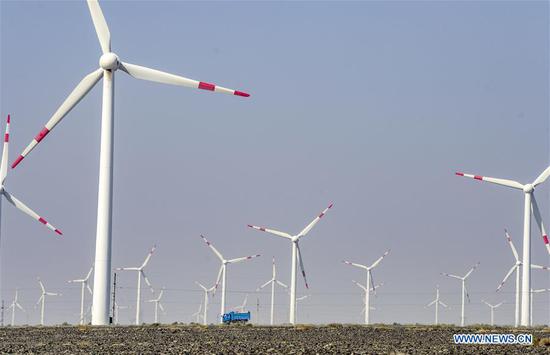A new e-commerce law that takes effect on January 1 will require Chinese online traders to pay taxes on their transactions, bringing a shock to the sector but allowing it to develop in a sounder fashion, an expert said.
Some e-commerce traders are already thinking of leaving the sector as the tax could crimp their profits.
One such daigou (an overseas shopper who buys luxury for domestic customers), a 20-something woman surnamed Yang, told the Global Times on Monday that if she can't run her business without government registration, she may abandon the industry.
"If I register and have to pay a tax, then there's not much meaning in doing daigou business because with the tax, products will be even more expensive than at franchised stores," she said.
"I will first see what other people will do and then make my own decision," she said. Based in Shenzhen, South China's Guangdong Province, Yang often shops in Hong Kong and South Korea for her customers.
A Sweden-based daigou told the Global Times that customs checks in China have gotten tougher, and many of her daigoupeers are pushing customers to buy as much as they can before the law is implemented.
But she said she will register with the government in line with the law. "I think it's just a matter of time for the policy to be launched and it's not such a bad thing for shoppers who want to stay in this business for the long term."
"We'll adjust our prices to reflect the additional costs, so we must change our business model to survive" in a way that doesn't involve relying on price advantages, she said.
The government announced the new e-commerce law at the end of August. Under the law, e-commerce traders, referring to those who sell products or provide services via the internet, must obtain administrative licenses, register as market entities and pay taxes, according to npc.gov.cn.
Lin Jiang, an economics professor at Lingnan University, said that when e-commerce emerged in China, the government at first overlooked the issue of taxes as a way to encourage the sector.
"But now the scale of e-commerce in China is vast, and neglecting to collect taxes on it is unfair to traditional brick-and-mortar sellers. Having to register and pay taxes will bring order to the sector, which developed chaotically in the past few years, leading to problems like counterfeit products," Lin told the Global Times.
"Also, it would be a big loss for the government to continue ignoring this gigantic tax source," Lin commented.


















































